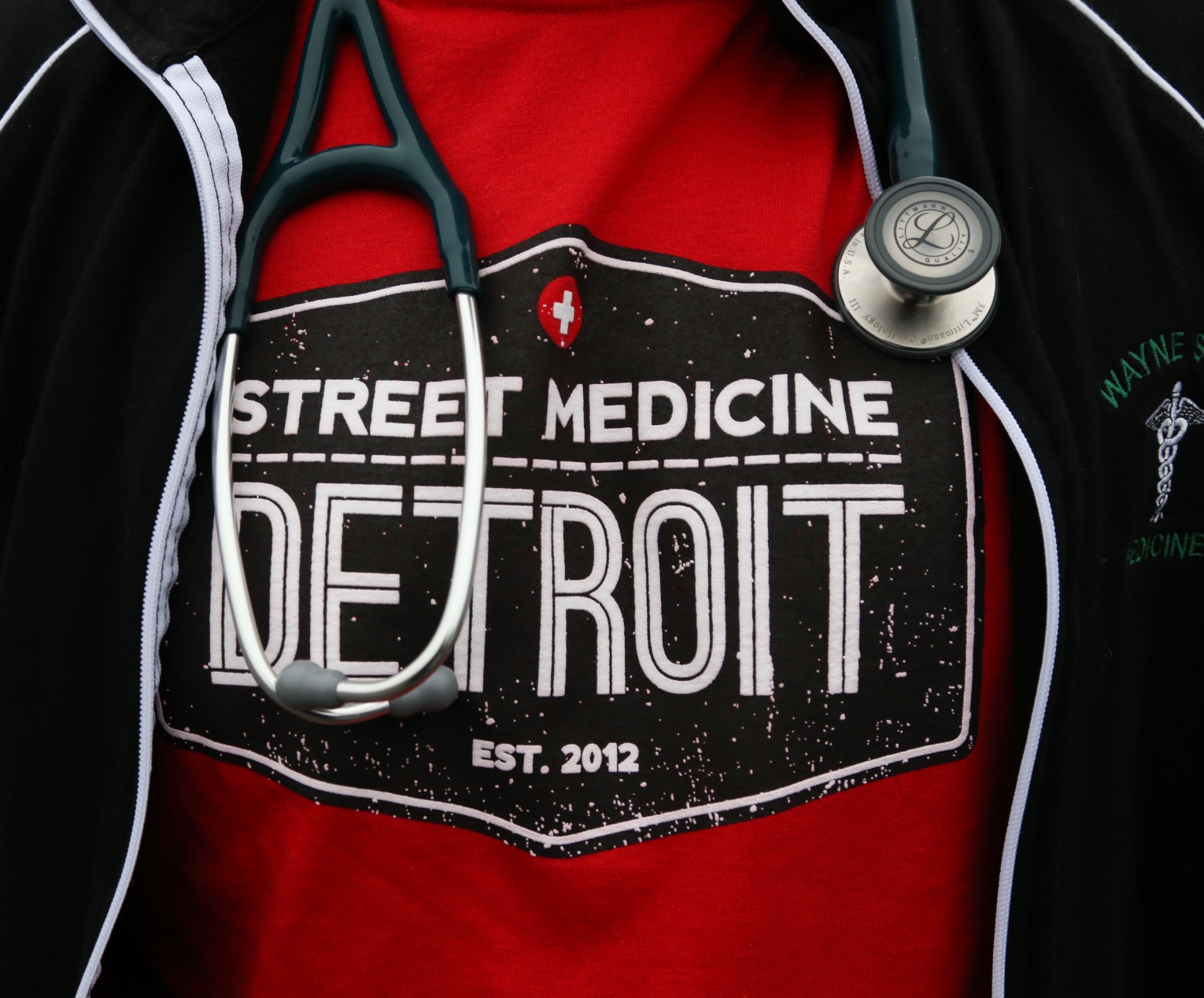
The Street Medicine Detroit student organization founded at the Wayne State University School of Medicine in 2012 is working to combat the area's ongoing hepatitis A outbreak by administering donated vaccines to Detroit's homeless population.
Approximately 200 vaccines have been administered to date, 95 from Sept. 7 through Oct. 19, 2017.
"As opposed to most organizations that ask patients to make an appointment and come in, we put our medications, vaccines and electronic medical records in backpacks and go into shelters and out to street corners. Thus, we plan on reaching out to as much of Detroit's homeless community as we can. On all of our street runs, roughly seven to nine a month, we have been heavily focusing on hep A shots for patients," said Kristy Abraham, a sophomore medical student and director of communications for Street Medicine Detroit.
The organization was first contacted by an epidemic intelligence service officer with the U.S. Centers for Disease Control and Prevention's Division of Communicable Diseases, and the Michigan Department of Health and Human Services.
"The homeless and transient populations are among the high-risk groups for contracting hepatitis A. In addition to working through homeless shelters and other community-based organizations that serve these populations, we reached out to Street Medicine Detroit because this is an organization already out in the community accessing vulnerable community members who may not stay in shelters or be accessible by local health departments," said Lynn Sutfin, a public information officer with the MDHHS. "As part of their care team, they involve community advocates who were formerly homeless or have good rapport with people who are homeless to help address barriers to care."
The initiative is entirely run by WSU medial students, who have made it their mission to vaccinate as many people as they can in the Detroit area.
"Their assistance has been vital in reaching this population to help bring an end to the hepatitis A outbreak in Michigan," Sutfin said.
The Detroit Health Department provided the vaccines.
"Currently, we are only providing the shots through our official 'street runs' because it is very important that we collect appropriate documentation and waivers for each patient, but we would certainly be open to other opportunities to give out vaccines to those unable to go into the doctor's office and get one themselves," Abraham said.
As of Feb. 20, there have been more than 760 cases of hepatitis A related to the outbreak, including 161 in Detroit and 132 in the surrounding Wayne County areas. Nearly 81 percent of those who have contracted the disease have been hospitalized. Twenty-five have died.
The vaccine is recommended as part of routine childhood immunizations, but most adults have not received it, said MDHHS Chief Medical Executive Eden Wells, M.D., in a state news release.
While no common source of the outbreak such as contaminated food or water has been identified, transmission appears to be person-to-person through illicit drug use, sexual activity and close contact among household members.
Symptoms include jaundice, fever, fatigue, loss of appetite, nausea, vomiting, abdominal pain, dark urine and light-colored stools. Symptoms usually appear over a number of days and can last less than two months or up to six months. Hepatitis A can sometimes cause liver failure and death.
More background on the outbreak is available here.